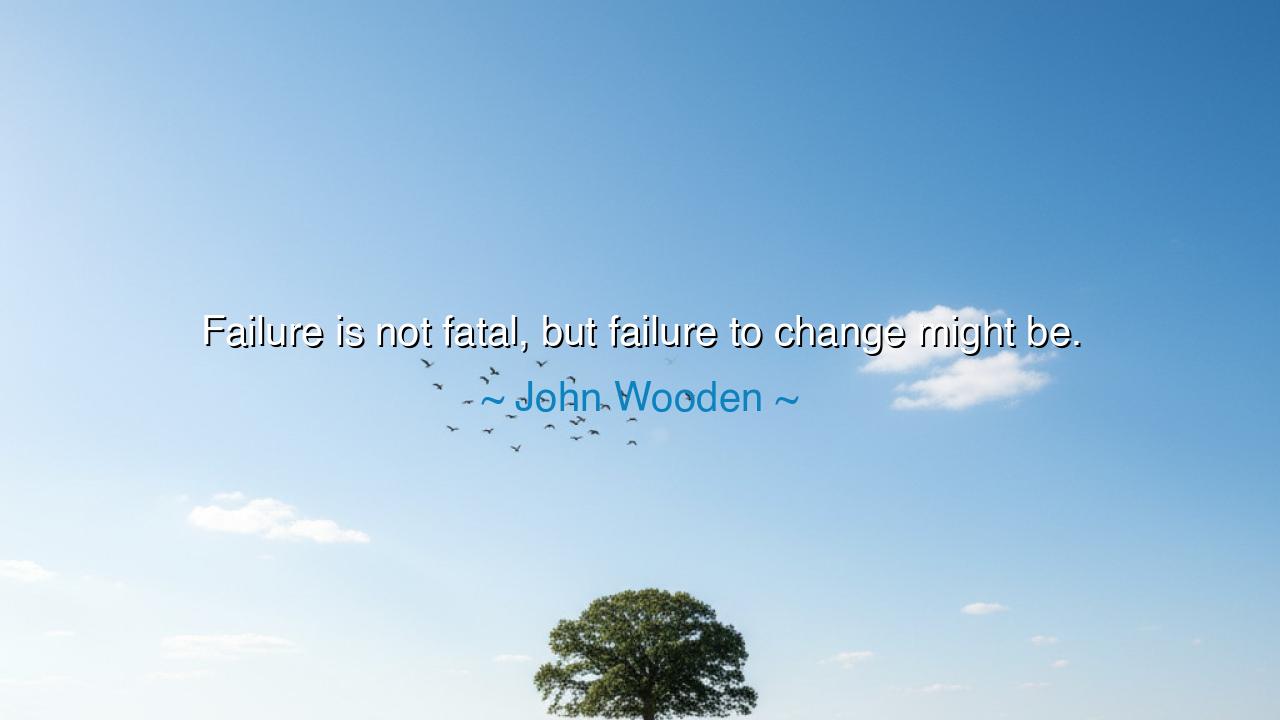
Failure is not fatal, but failure to change might be.






Host: The gymnasium was nearly empty now. The squeak of sneakers, the rhythm of bouncing basketballs, the roar of applause — all of it had faded into silence and dust motes. The wooden floor gleamed faintly under the pale overhead lights, marked with the ghosts of games and the echoes of ambition.
The scoreboard still blinked red: 68–66. The game was over, the crowd gone. Only Jack remained, sitting on the bench, elbows on knees, hands clasped as if in prayer or surrender. Sweat clung to him, his breath shallow. Across the court, Jeeny leaned against the wall, arms crossed, watching him with quiet empathy — the kind that comes from knowing pain doesn’t always look like defeat.
Jeeny: “You played hard.”
Jack: “Not hard enough.”
Jeeny: “Two points. That’s not failure.”
Jack: “No. It’s a reminder.”
(He stares at the floor, where the reflection of the scoreboard flickers like guilt.)
Jeeny: “Of what?”
Jack: “Of what I could’ve done differently.”
Jeeny: “You sound like John Wooden.”
Jack: (half-smiling) “He said, ‘Failure is not fatal, but failure to change might be.’”
Jeeny: “And you believe that?”
Jack: “I have to. Otherwise, every loss is just pain instead of progress.”
Host: The lights above hummed quietly, a steady rhythm against the silence. The air smelled of sweat, varnish, and effort — that rare perfume of discipline.
Jeeny: “You think people actually change after failure?”
Jack: “The ones who want to survive do.”
Jeeny: “And the others?”
Jack: “They call it bad luck and repeat the same mistake.”
(He takes a long breath, the kind that carries both fatigue and reflection.)
Jeeny: “You think change always means getting better?”
Jack: “No. Sometimes it means stopping. Admitting that what you’ve been doing isn’t working.”
Jeeny: “That sounds like quitting.”
Jack: “No. It’s strategy. Even rivers change course to keep flowing.”
Host: The gym doors creaked as the janitor passed through, broom in hand, offering a nod before disappearing into the locker rooms. The world outside was dark — a mirror of the exhaustion inside.
Jeeny: “You ever been afraid to change?”
Jack: “Every damn day.”
Jeeny: “Then why do it?”
Jack: “Because staying the same hurts more.”
(She nods, quietly. The scoreboard hums again, the numbers still glowing — two points, two lessons, too much meaning.)
Jeeny: “You talk about failure like it’s a friend.”
Jack: “It is. It’s the only one honest enough to tell me who I really am.”
Jeeny: “And who’s that?”
Jack: “A man learning.”
Host: The ball rolled from under the bleachers — an echo of movement. Jeeny picked it up, turned it in her hands, the orange leather smooth and familiar.
Jeeny: “You think failure makes people wise?”
Jack: “Not automatically. It just gives you the chance to listen differently.”
Jeeny: “Differently?”
Jack: “Yeah. Success shouts, failure whispers. But the whisper says the truth.”
Jeeny: “And the truth is?”
Jack: “That you can’t win the next game playing the last one.”
(She tosses him the ball. He catches it, grips it tight — a small act of trust and renewal.)
Host: The sound of the ball hitting the floor broke the silence — one bounce, then another. A rhythm forming again.
Jeeny: “You know what I love about Wooden’s quote?”
Jack: “What?”
Jeeny: “It doesn’t glorify winning. It glorifies adapting.”
Jack: “Because failure’s not final — unless you make it a monument.”
Jeeny: “Exactly. People build shrines to their mistakes instead of building new roads from them.”
(He dribbles slowly, each bounce softer, more deliberate. He’s listening — not to her, but to the rhythm of resilience finding its beat again.)
Jack: “You ever think change gets harder as you age?”
Jeeny: “Only if pride gets louder than hunger.”
Jack: “That’s good.”
Jeeny: “It’s true. Growth demands humility — the willingness to be wrong again.”
Host: The clock ticked, the hands crawling toward midnight. The fluorescent lights buzzed, the gym now belonging entirely to them — two people dissecting defeat until it resembled wisdom.
Jeeny: “You know what people fear most about change?”
Jack: “Losing control.”
Jeeny: “No. Losing identity. The idea that the person they’ve been isn’t enough anymore.”
Jack: “Maybe that’s why we hold on to old versions of ourselves — even when they’re killing us.”
Jeeny: “Exactly. But failure, real failure, breaks that illusion. It forces evolution.”
(She steps closer, voice soft, honest.)
Jeeny: “Failure is feedback. Change is response.”
(He looks at her, eyes clear now, not defeated — focused.)
Jack: “Then the real danger isn’t losing the game.”
Jeeny: “It’s refusing to play differently.”
(They share a quiet understanding. Not comfort, but courage.)
Host: The camera would pull back, the two figures small in the vast emptiness of the gym — the court stretching out before them like a field of second chances.
Host: Because John Wooden was right — failure isn’t fatal, but failure to change might be.
Failure doesn’t kill you.
Stubbornness does.
Host: To fail is to fall.
To change is to rise differently.
And in that act — that small, invisible shift between regret and resolve —
is where character replaces victory.
Jeeny: “So, what’ll you do tomorrow?”
Jack: “Wake up earlier. Shoot longer. Think less.”
Jeeny: “That’s change.”
Jack: “That’s life.”
(He bounces the ball one last time — it echoes, clean and decisive, across the empty gym.)
Host: The lights dim,
the court falls into shadow,
and the scoreboard finally fades to black.
Because failure doesn’t end the story —
it edits it.
And those who are brave enough to rewrite,
will always find new ways to win.






AAdministratorAdministrator
Welcome, honored guests. Please leave a comment, we will respond soon